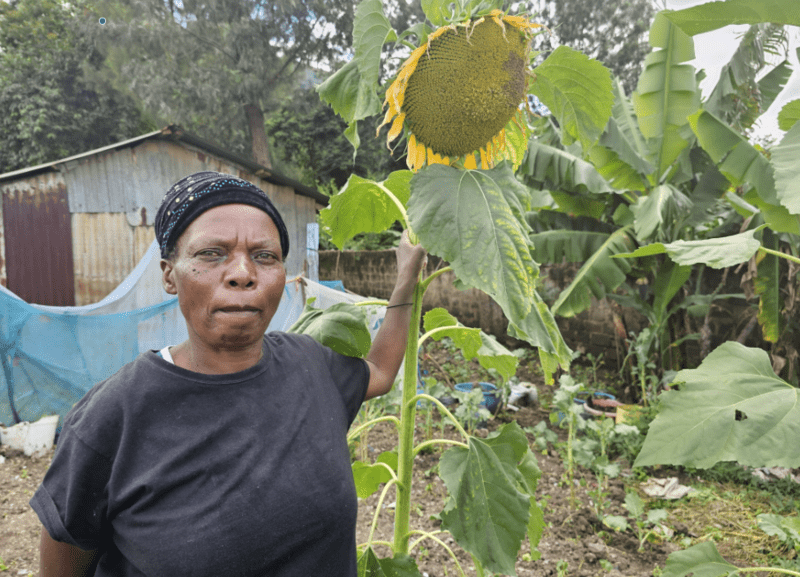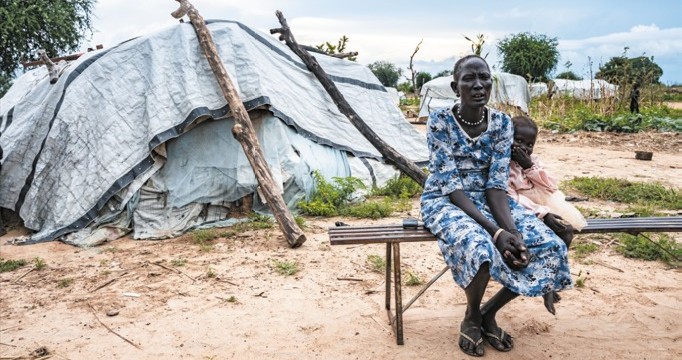Eastleigh resident turns to sunflower farming for livelihood

Each cycle of sunflowers takes about three months to mature, and once harvested, Grace sun-dries them for several days before packing and transporting them to Namanga town in Kajiado County.
Grace Wangoi has found a unique way to support her family through sunflower farming in Eastleigh. Her journey began in 2016 when she and her husband moved from Muranga to Eastleigh, settling in section three. A year later, they relocated to Airbase Ward, living temporarily on public land.
However, when the government decided to construct a technical college on that land, Grace and other residents were evicted. They were later allocated another piece of land within Airbase by the Deputy County Commissioner of Kamukunji.
More To Read
- Eastleigh bustles with Christmas shoppers as holiday season kicks off early
- Tatu City hosts Muslim business community to explore new investment opportunities
- How community initiative is reviving Eastleigh’s cricket legacy
- Eastleigh MCA blames county officials for destruction of newly built Captain Mungai Street
- Youth football comes alive in Eastleigh as Fazam Academy clinches Moi Cup title
- Eastleigh’s 24-hour economy key to Kenya’s commerce, says CS Lee Kinyanjui
Grace's situation took a challenging turn when her husband, the family's breadwinner, left her and their six children. Faced with the need to provide for her family, Grace turned to farming. She initially grew vegetables such as kale, spinach, tomatoes, and other traditional crops for home consumption before starting to sell them to her neighbours.
Discovering the potential of sunflowers, Grace decided to shift her efforts. She received sunflower seedlings from a friend and was surprised at how well they grew in Eastleigh.
The favourable conditions of good sunlight, the moist drained soil and access to water from nearby army Airbase pipes helped her sunflowers thrive.
"The sun and the soil here may be making it easy because after every three months, I harvest them," Grace said.
Each cycle of sunflowers takes about three months to mature, and once harvested, Grace sun-dries them for several days before packing and transporting them to Namanga town in Kajiado County.
In Namanga, the sunflowers are processed into cooking oil. Grace produces 40 to 50 litres of cooking oil per harvest, making at least Sh40,000 which she uses for her household and sells to her neighbours and local shops.
Phelista Nyaboke, one of Grace's neighbours, shared her appreciation for Grace's work. "Her oil is pure and cheap, she gives us for free sometimes. I don't remember the last time I bought cooking oil from the shops," Phelista said.
Grace's sunflower farming has become the primary source of income for her family since her husband left in 2017.
The farming business supports her six children, providing daily necessities and covering school fees.
"I get my daily bread from this plantation and the sunflower gives me the cash I need to buy anything else and pay school fees," Grace noted.
However, Grace faces challenges in her farming venture. During rainy days, her crops are often washed away by floods due to the sloping nature of her land.
"The flood waters pose a challenge to the crops during the rainy season," she explained.
Another concern for Grace is the insecurity of her living situation. The land she currently occupies does not belong to her, and she lives in constant fear of eviction. Additionally, the small size of the land limits her ability to expand her sunflower farming to a larger scale.
"This land does not belong to me but again if I was to carry out large-scale sunflower farming, it is impossible," she noted.
Despite these challenges, Grace remains determined to provide for her family through her farming efforts.
Top Stories Today











































